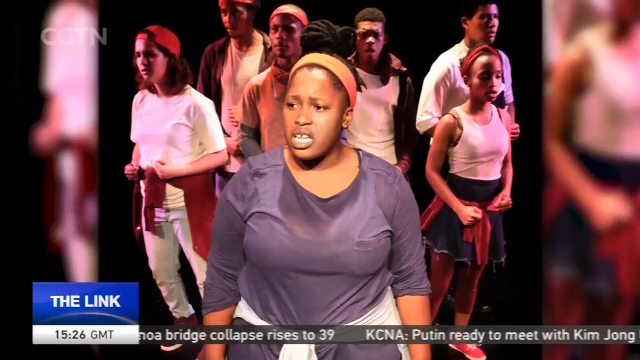
10:04, 16-Aug-2018
Poverty Alleviation: Poverty, inequality persist in South Africa despite democracy
Updated
10:00, 19-Aug-2018
04:27

Poverty is a challenge in South Africa too. While the country has made great gains since gaining freedom in 1994, challenges remain. One of them is inequality. I travelled to Cape Town to find out more.
The city of Cape Town at the southern tip of the African continent. Many who live here love it. Many who visit say it's a remarkable place. There's no doubt that Cape Town is an incredible city. But beyond the beauty is a city of contrasts. Between rich and poor, past and present, privilege and inequality.
LINDY MTONGANA, KHAYELITSHA, SOUTH AFRICA "This is Khayelitsha, a place that tourists rarely see. Many of those who live here rarely get to see the rich side of Cape Town. Those who do, often feel actively left out."
VUYOLWETHU TSWELEKILE, PUPIL "There's a place called Seapoint. People look at you like you are a drug dealer of a gangster. Why do they have to look at me like that? I am a human being."
One of the biggest challenges facing South Africa is inequality in education.
VUYOLWETHU TSWELEKILE, PUPIL "I have faced inequality in education when it comes to textbooks. I do business studies. 40 learners must share 4 textbooks."
Vuyo hopes to get into university one day. But he's worried about what that entails.
VUYOLWETHU TSWELEKILE, PUPIL "I am from a working-class background. My parents are working class. They can't afford to send me to university. If I don't meet the requirements for a bursary I can't get in."
But challenges persist even for those who DO get into university. Many are familiar with South Africa's recent Fees Must Fall protests. And many have spoken out against both the movement, as well as how authorities handled the tensions. At the Baxter Theatre in Cape Town, one play has been trying to change perceptions by taking a closer look at what students are going through.
TSHANADO MANGCU, PERFORMER "We've always said this play should be an inside eye of the human side of the struggle."
But why has inequality in education become such an issue in recent times? And, why has it taken so long to become topical?
AMEERA CONRAD, PERFORMER "We were told we are the lazy generation - the reason it's taken this long is that we were told we have nothing to fight for."
THAPISO OARABILEDITSELE, PERFORMER "Perhaps South Africa is stuck in a mentality. I don't want to be like this, be seen as this violent kid. We are the same as the people who were stuck in Apartheid."
So, how can we better address inequality in education and beyond. Quinton Pretorius runs several projects in Johannesburg, bringing together wealthy and poor children, and the results have been encouraging.
While many young people have to deal with inequality on a daily basis, in schools, in wealthy spaces, in dealing with authority, many of them still have hope for what South Africa can become.
Lindy Mtongana, CGTN, Cape Town.

SITEMAP
Copyright © 2018 CGTN. Beijing ICP prepared NO.16065310-3
Copyright © 2018 CGTN. Beijing ICP prepared NO.16065310-3